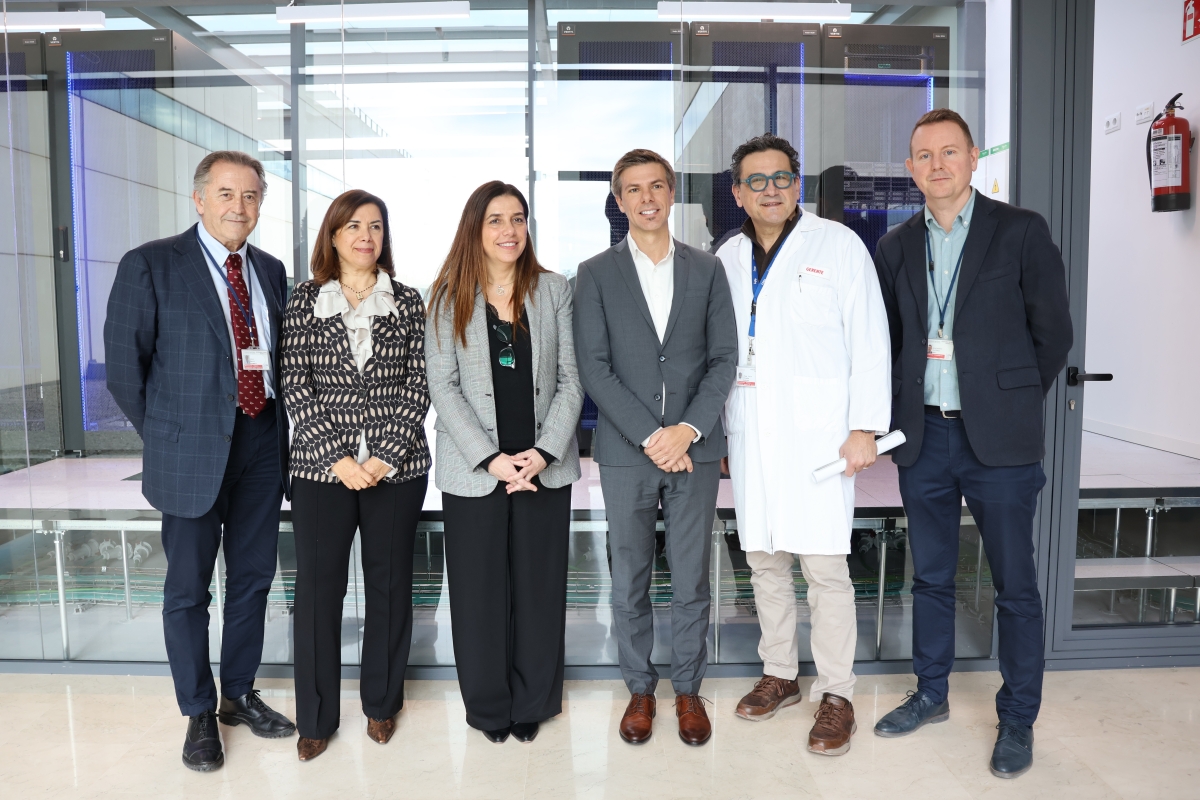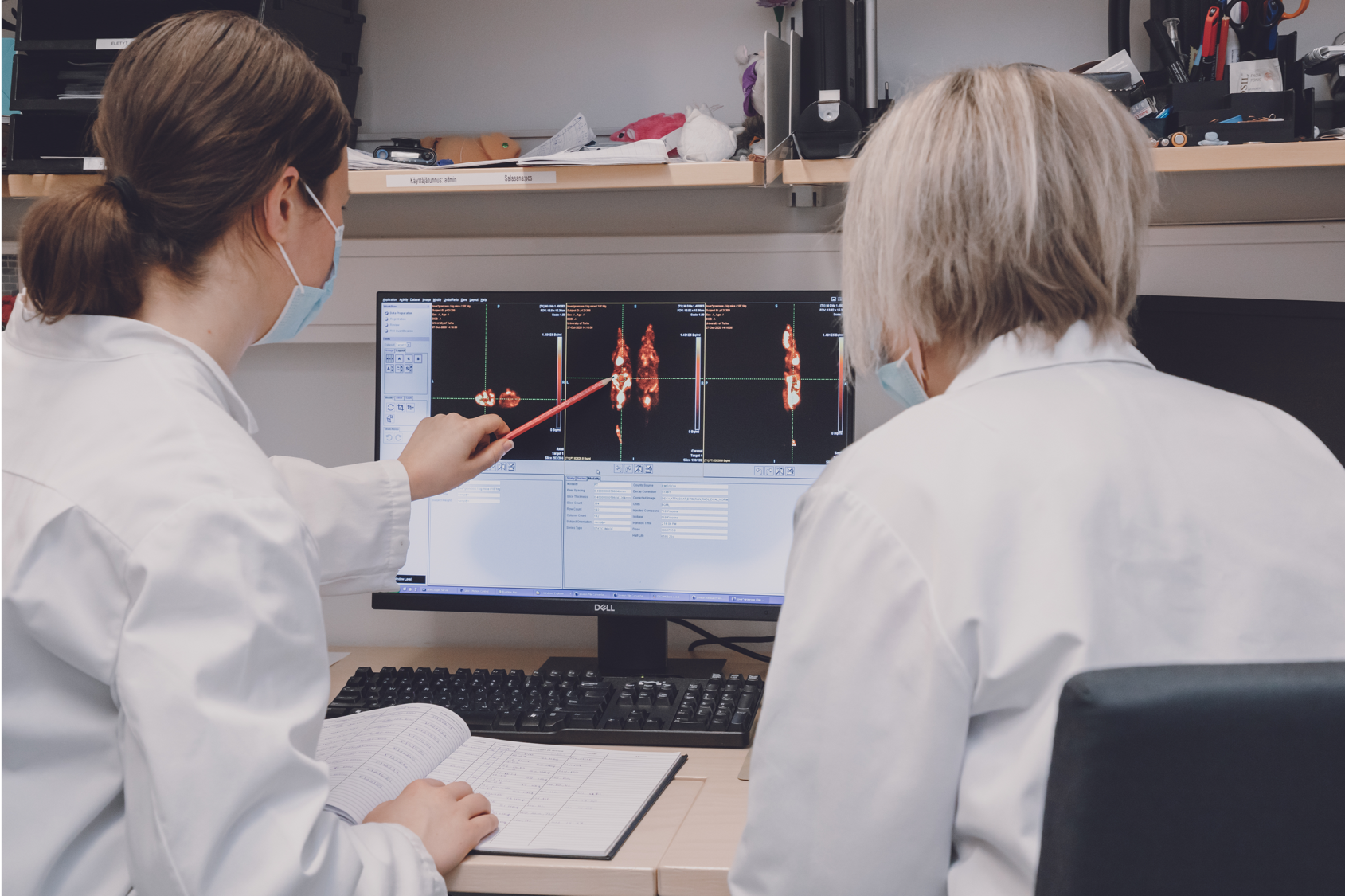
February 13, 2026
Euro-BioImaging at 3C-CoDash Hackathon
Bugra Oezdemir, our image data tools specialist from the Euro-BioImaging Bio-Hub team, had the pleasure of co-leading a session at the Data Science 3C-CoDash…
We are pleased to announce that the Euro-BioImaging family is growing – and consolidating! On November 19, 2025, three new Nodes joined our infrastructure, after evaluation by the Scientific Advisory Board and approval by the Euro-BioImaging Board. These include France Life Imaging (FLI), a multi-sited biomedical imaging Node in France, the Advanced NL Microscopy Node, a multi-sited biological imaging Node in the Netherlands – formed through a merger of 5 existing Euro-BioImaging Nodes – and the Madrid Advanced Microscopy Center (MAdMiC), a biological imaging Node made up of multiple facilities in Madrid. Together, they represent a significant expansion of our technology portfolio, increased expertise and additional access and training capacity for researchers and imaging scientists. There are now a total of 295 imaging facilities in Euro-BioImaging, coming together to form 39 Nodes!
In addition to their unique imaging capacities, each Node has a significance beyond its service capability. For example, the Advanced NL Microscopy Node is a strong sign of the collaboration between Dutch facilities and a hallmark of the new national strategy towards collaboration and consolidation of its national imaging capacities. France Life Imaging introduces a unique biomedical imaging capability in France with an expansive portfolio of technologies and expertise and as such, is our second French national Node. The Madrid Advanced Microscopy Center (MAdMiC) shows the engagement of the Spanish imaging community, which joined Euro-BioImaging only two years ago, to bring onboard new Nodes. We will now be able to offer services to users across six Spanish Nodes and four Spanish cities, including Madrid.
About our new Nodes
How do facilities join Euro-BioImaging

Warm welcome to our new Nodes, and congratulate the facilities and staff whose excellent work has been recognised and endorsed by the Euro-BioImaging Scientific Advisory Board. It’s an achievement, and a vote of confidence. Together, we will advance imaging and drive excellent research and innovation.
As part of the Euro-BioImaging ERIC, the services and expertise provided by these facilities will be open to all scientists, regardless of their discipline or affiliation. Users will be able to apply for technologies and expertise from these new Nodes via the Euro-BioImaging Access Portal in early 2026.
France Life Imaging (FLI) is a well-established national infrastructure, coordinated by the CEA, alongside Inserm, CNRS and Inria, and 15 universities across the country. FLI comprises 44 medical imaging platforms and over 160 in vivo imaging systems. FLI’s technologies will broaden the Euro-BioImaging portfolio and meet increasing demand for high-end translational imaging. All major in vivo imaging modalities are available, including MRI (from 1.5T to 11.7T), PET, SPECT, CT, micro-CT, ultrasound, optical modalities, and MEG. Importantly, FLI offers several advanced imaging systems such as spectral photon counting CT (SPCCT), ultra-high field 7T human MRI, and interventional MRI. In addition, FLI has a transversal platform dedicated to Image Analysis and Management (IAM), as well as four networks of expertise, focusing on critical areas of medical imaging, and a training network, promoting knowledge sharing and skill development.
The Advanced NL Microscopy Node brings together the expertise of the following Nodes:
For users, this means one access point to the expertise in correlated light and electron microscopy, optical imaging, high-throughput screening, as well as functional imaging and spectroscopy, with applications across health, drug discovery and plant sciences. This is also the first Node in Euro-BioImaging to arise via a Node merger following development of community collaboration processes in the Dutch community.
MadMiC brings together four leading, well-established imaging facilities from two of Spain’s top research institutions in Madrid: the Advanced Optical Microscopy and Preclinical Biomedicine Facilities at the Centro de Biología Molecular Severo Ochoa (CBM) and the Advanced Optical Microscopy and Cryo-Electron Microscopy Facilities at the Centro Nacional de Biotecnología (CNB). It offers over 26 microscopy systems and is capable of supporting over 25 microscopy techniques. MAdMiC will enable cross-scale imaging from mesoscopic to nanoscale imaging through an extensive array of functional microscopy methods. MAdMiC places particular emphasis on life imaging, nanoscopy and ultrastructural imaging. Beyond its technical strengths, MAdMiC fills a key geographical gap in the Euro-BioImaging network by establishing a strong presence in Madrid and complementing the existing Spanish Nodes.
At regular intervals, Euro-BioImaging invites applications from imaging facilities located in Euro-BioImaging ERIC member countries via its Call for Nodes. In addition, existing Euro-BioImaging Nodes can apply for an upgrade to include new facilities within their Node structure.
Stringent requirements
In the Call for Nodes, applicants are evaluated by the leading international experts on our Scientific Advisory Board on a wide variety of factors, including:
Following successful evaluation and approval by the Board, the Nodes join the Euro-BioImaging family by signing service level agreements that outline the services to Euro-BioImaging users. This multi-step process guarantees a top-notch research infrastructure and a high-level of service for users.

February 13, 2026
Bugra Oezdemir, our image data tools specialist from the Euro-BioImaging Bio-Hub team, had the pleasure of co-leading a session at the Data Science 3C-CoDash…

February 12, 2026
The IIS La Fe (Instituto de Investigación Sanitaria La Fe) in Valencia, hosting the Euro-BioImaging Radiology and Medical Imaging Valencia Node, has inaugurated…

February 11, 2026
Today is the International Day of Women and Girls in Science. And tomorrow. And the day after that. The images below show our everyday.